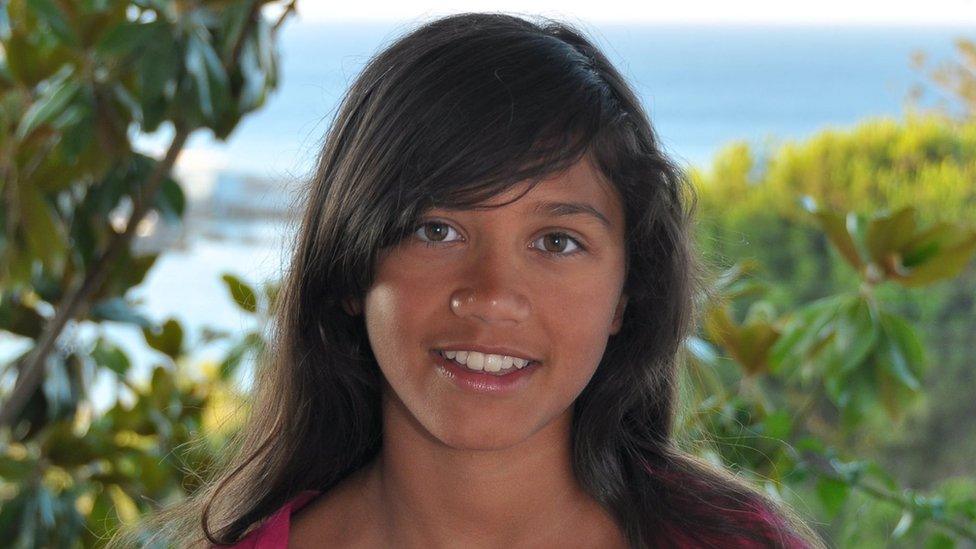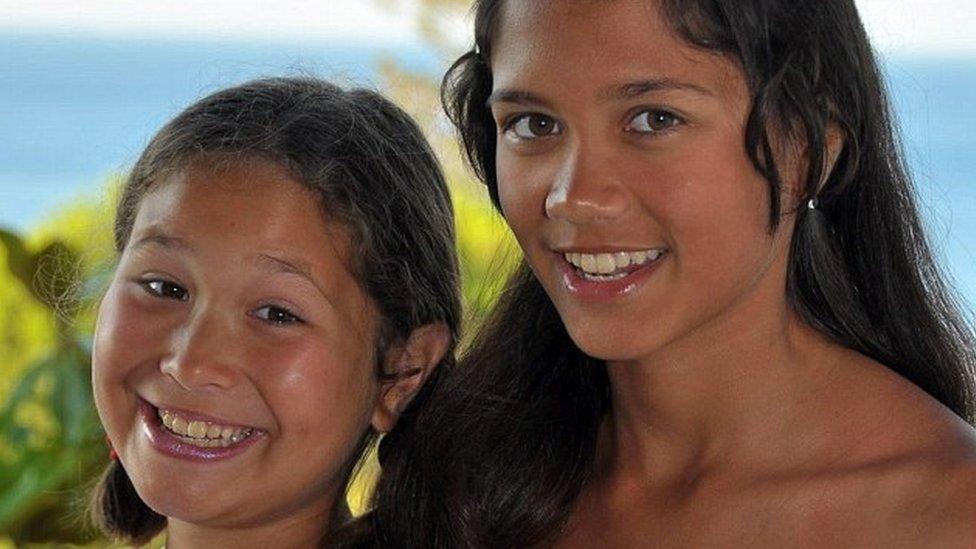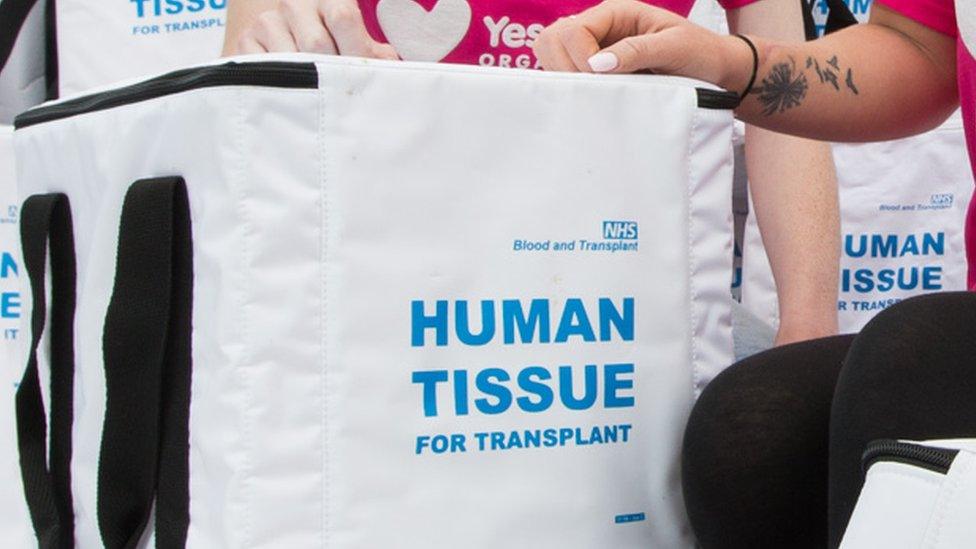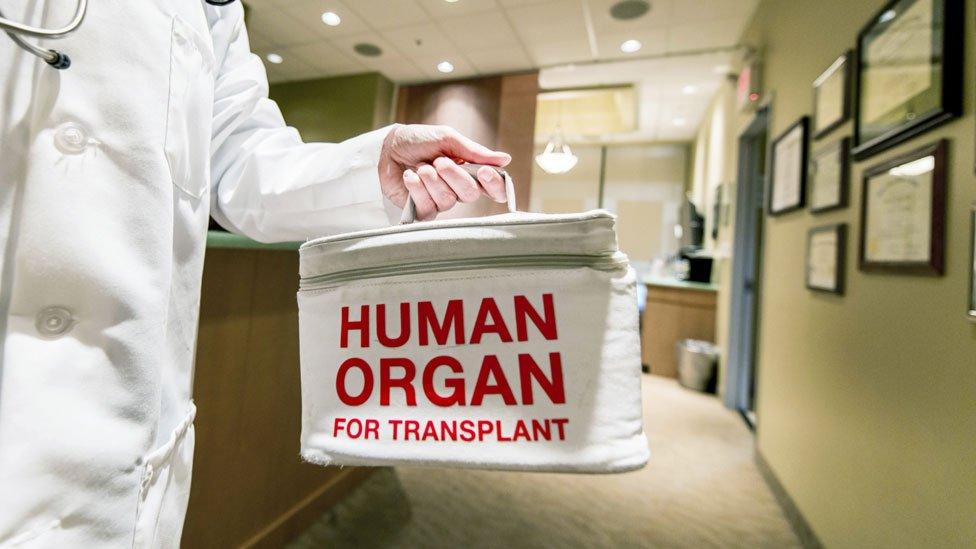Girl's donated organs help a record eight people
- Published

Jemima's organ donations have helped five different children around the country.
A 13-year-old girl who died from a brain aneurysm has helped a record eight different people, including five children, through organ donation.
Jemima Layzell, from Somerset, who died in 2012, donated her heart, pancreas, lungs, kidneys, small bowel and liver.
Jemima's parents said she was clever, compassionate and creative - and would have been "very proud of her legacy".
NHS Blood and Transplant said no other donor had helped as many people.
Jemima collapsed during preparations for her mum's 38th birthday party and died four days later at Bristol Royal Hospital for Children.
Her heart, small bowel, and pancreas were transplanted into three different people while two people received her kidneys.
Her liver was split and transplanted into a further two people, and both of her lungs were transplanted into one patient.
Normally, a donation results in 2.6 transplants - eight is very unusual.
'Special and unique'
Jemima's mum Sophy Layzell, 43, a drama tutor, and dad Harvey Layzell, 49, managing director of a building firm, said they knew Jemima was willing to be a donor because they had spoken about it a couple of weeks before her death, after someone they knew died in a crash.
Sophy said: "They were on the register but their organs couldn't be donated because of the circumstances of their death.
"Jemima had never heard of organ donation before and found it a little bit unsettling but totally understood the importance of it."
She said they still found the decision to donate their daughter's organs hard, but felt it was right.

Jemima's family have set up a trust in her name to promote organ donation
"Everyone wants their child to be special and unique and this among other things makes us very proud.
"Shortly after Jemima died, we watched a programme about children awaiting heart transplants and being fitted with Berlin Hearts in Great Ormond Street Hospital.
"It affirmed for us that saying 'no' would have been denying eight other people the chance for life, especially over Jemima's heart, which Harvey had felt uncomfortable about donating at the time."

What is a brain aneurysm?
An aneurysm is a bulge in a blood vessel caused by a weakness in the blood vessel wall.
It can develop anywhere in the body, but most commonly in the brain and around the heart.
In the brain, if the ballooning blood vessel bursts, extensive bleeding causes severe brain damage - and usually results in death or serious disability.
There are usually no signs of the problem before the aneurysm ruptures.
Aneurysms in children are rare and it is still not clear why blood vessels weaken to make them form.

Jemima's parents said it was very important for families to talk about organ donation.
"Every parent's instinct is to say no, as we are programmed to protect our child. It's only with prior knowledge of Jemima's agreement that we were able to say yes.
"Jemima was lovely - clever, funny, compassionate and creative - and we feel sure she would be very proud of her legacy," Sophy said.
'Too many say no'
Sophy, Harvey, and Jemima's sister Amelia, aged 17, now run The Jemima Layzell Trust, external, which helps young people with brain injuries and also promotes organ donation.
NHS Blood and Transplant said hundreds of people were still dying unnecessarily while waiting for a transplant because too many families said no to organ donation.
Last year, 457 people died waiting for a transplant, including 14 children.
There are currently 6,414 people on the transplant waiting list, including 176 children.
In 2015, 22-year-old Tom Wilson died in a freak accident, external after he was hit on the head by a hockey stick.
His donated organs, as well as skin, bone and tissue, are thought to have helped the lives of around 50 people.
Join the conversation on our Facebook page, external.
- Published4 September 2017

- Published11 July 2017
